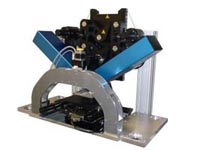In contemporary academia, the field of photonics has emerged as a beacon of innovation, pushing the boundaries of science and technology. The discipline, which encompasses the generation, manipulation, and detection of photons, has become increasingly significant due to its myriad applications across various sectors, including telecommunications, medicine, and renewable energy. Pursuing a Doctor of Philosophy (PhD) in photonics in India can be an intellectually stimulating and professionally rewarding endeavor. This article endeavors to outline the diverse scopes that a PhD in photonics can extend in the Indian context.
1. Cutting-Edge Research Opportunities
The foremost appeal of a PhD in photonics lies in the extensive scope for cutting-edge research. Scholars have the opportunity to delve into ultra-high-speed communication systems, advanced imaging technologies, and quantum optics. Research in these areas is not merely academic; it is instrumental in redefining existing technological paradigms. India, with its burgeoning research institutions and universities, offers ample opportunities for collaboration with global leaders in the field. The National Institute of Photonics and other specialized centers are redefining India’s position in the global photonics landscape.
2. Applications in Telecommunications
Telecommunications has been revolutionized by photonics technologies, particularly through the use of fiber optics. A PhD in photonics equips candidates with the requisite knowledge to contribute to this dynamic field. As data transfer speeds continue to escalate, research focused on improving bandwidth, minimizing signal degradation, and enhancing transmission distances is critical. Understanding the interplay between light and communication systems enables researchers to design innovative solutions that could enhance connectivity across urban and remote areas alike.
3. Advancements in Medical Technologies
One of the most exciting applications of photonics is in the realm of medical technologies. Photonics plays a pivotal role in diagnostics, imaging, and therapeutic procedures. Techniques such as laser surgery, optical coherence tomography, and phototherapy harness the power of light to create non-invasive treatment options. A PhD in this domain can lead to groundbreaking research that advances healthcare, making it more efficient and accessible. Collaborations with medical institutions and biotechnology companies can provide avenues for translational research, bridging the gap between laboratory findings and clinical applications.
4. Enhanced Energy Solutions
The urgent need for sustainable energy solutions has positioned photonics at the forefront of renewable energy technologies. Photovoltaic cells and solar energy systems heavily rely on photonic principles to convert sunlight into electricity. Research in this area not only entails improving existing technologies but also exploring new materials, such as perovskites, that promise higher efficiency rates. Thus, a PhD in photonics opens the door to contributions that are crucial for addressing global energy challenges, particularly in a country like India, where energy demands are escalating.
5. Exploring Quantum Technologies
Quantum technology is an emerging field that captures the imagination of researchers. Photonics is integral to the development of quantum communication systems and quantum computing. A PhD in photonics can offer pathways into research that seeks to leverage the principles of quantum mechanics to develop next-generation systems that are exponentially faster and more secure than classical systems. As India seeks to position itself as a leader in quantum advancements, scholars in photonics can play a critical role in shaping this novel frontier.
6. Societal Impact and Technological Innovation
The societal impact of advancements in photonics extends beyond the confines of laboratories and research institutions. Technologies developed from photonics research can lead to enhanced quality of life, whether through improved medical diagnostics, better educational tools, or more efficient communication systems. Scholars have the responsibility of ensuring that their research addresses pressing societal needs. Entering academia or industry with a PhD in photonics enables one to focus on innovations that can reap benefits for both national and global communities, ideally leading to sustainable development.
7. Interdisciplinary Collaborations
Photonics inherently intersects with various scientific and engineering disciplines, creating a fertile ground for interdisciplinary collaborations. Researchers in nanotechnology, material science, and electrical engineering can find common ground and shared objectives, leading to synergistic efforts that amplify the impact of their work. A PhD program in photonics can facilitate networks and partnerships that cross traditional boundaries, ultimately fostering a holistic approach to problem-solving.
8. Opportunities in Industry and Entrepreneurship
The landscape of innovation is transitioning rapidly, and the transition from research to industry has never been more conducive. Photonics-engineered solutions are in demand across sectors, from consumer electronics to healthcare. Armed with a PhD, graduates can embark on careers in research and development, product design, or even entrepreneurship, launching startups that leverage photonic technologies to meet emerging needs. The skill set acquired during doctoral studies empowers graduates to navigate the intricacies of technology transfer and intellectual property, thereby catalyzing the transition from theory to practical applications.
9. Global Perspective and Learning
Pursuing a PhD in photonics not only enriches individual knowledge but also offers a global perspective. Engaging with international collaborators exposes scholars to diverse methodologies, cultural insights, and varying approaches to photonics research. This experience enhances the overall research ecosystem within India while positioning its scholars as integral voices on the global stage.
Conclusion
The scope of pursuing a PhD in photonics in India is expansive and multifaceted. As the world increasingly acknowledges the significance of light-based science in solving pressing problems, the opportunities for research, innovation, and collaboration multiply. The confluence of technological sophistication and societal needs creates a unique landscape where aspiring researchers can make substantial contributions. Thus, embarking on a PhD journey in photonics promises not only personal growth but also the potential to effect transformative changes across various sectors. For those who dare to explore the uncharted territories of light, the future can be exceedingly luminous.












